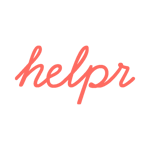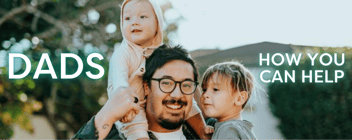How AB 1179 Changes the Healthy Workplace Healthy Family Act
According to a recent report from the Center for Economic Policy Research (CEPR), out of 22 wealthy countries, the United States is the only country that does not require employers to provide employees paid sick leave.
CEPR’s researchers also reported earlier this year that while other countries have invested more into family benefits over the last two decades, the US has actually invested less.
As a result, states have carried the burden of improving workplace benefits. Some states, like California, have carried this burden with more success than others. California’s Healthy Workplaces, Healthy Families Act of 2014 (HWHFA) is one of the few state laws that impose mandatory paid sick leave requirements on employers.
Now, a new bill is looking to amend the HWHFA. That bill is AB 1179. The bill was introduced earlier this year, and if passed, it will increase family benefits for employees who work at large companies.
History of the California Healthy Workplace Healthy Family Act (HWHFA)
The HWHFA is a California law that requires employers in California to provide paid sick leave to employees as a direct benefit.
The HWHFA is relatively unique in the United States. Although federal law requires unpaid sick leave FMLA, there is no federal equivalent to the HWHFA. According to the Society for Human Resources Management, California is one of just 16 states with state paid sick leave laws.
Key Provisions of the HWHFA
Under the HWHFA, any employee who works for an employer for 30 or more days in a given year is entitled to paid sick leave. The HWHFA imposes the following requirements to employers in California:
- Employers must provide employees one hour of paid sick leave for every 30 hours worked.
- Employees may accrue paid sick leave beginning on the first day of employment.
- Employees cannot begin using their sick leave until they’ve worked for the employer for 90 days.
- Employers may limit the amount of paid sick leave used per year to 24 hours per year, or three calendar days.
- Employees may use sick leave for themselves, family members, or specific purposes if the employee is a victim of domestic violence, sexual assault, or stalking.
- Retaliation or discrimination against an employee for requesting or using their paid sick leave is prohibited.
Do sick days roll over?
Yes, accruing sick leave can roll over to the next year. Employers may limit the amount rolled over to 48 hours, or six days.
2016 Amendments Added Sick Leave for In-Home Support Service Workers
Before the 2016 amendments, the HWHFA did not apply to in-home service workers. The 2016 amendments removed this exception. Although passed in 2016, this amendment did not become effective until July 1, 2018.
What is AB 1179?
AB 1179 will establish a safety net of childcare employee benefits for employees who work for companies with 1,000 or more employees, state employees, and other government employees. Specifically, AB 1179 will require that these employers provide employees with paid backup childcare benefits.
As a backup childcare solution, these benefits will not be used for primary childcare costs. Accrued backup childcare will only be used when the employee’s primary childcare provider can’t be used.
Key Provisions of AB 1179
Under AB 1179, any employee who works for an employer for 30 or more days in a given year is entitled to paid backup childcare. Below are some key provisions of California’s backup childcare bill:
- Employers must provide employees with one hour of backup childcare for every 34 hours worked, or 60 hours by the 200th calendar day of the year, every calendar year, or per 12-month period.
- Employees may begin accruing backup childcare benefits once they begin employment.
- Employees cannot begin using their backup childcare benefits until they’ve worked for the employer for 90 days.
Does accrued backup childcare roll over?
Yes. Accrued backup care will carry over to the following year. Employees will only be able to use 60 hours every year of employment, calendar year, or 12-month period.
How AB 1179 Changes the HWHFA
Both the HWHFA and AB 1179 provide employees with safety nets to help them manage unexpected obstacles to work. HWHFA allows employees to stay home if they’re sick without having to worry about their pay. AB 1179 will help employees stay at work even when their normal childcare provider is unavailable.
On its face, AB 1179 simply adds another mandatory benefit. Employers will be required to provide employees with both paid sick leave for themselves and their families, and large employers will be required to provide backup childcare benefits.
But by adding mandatory backup childcare benefits to the HWHFA, AB 1179 also provides employees with something they didn’t have before: options. With both types of benefits, employees will be able to either stay at work and find a backup childcare provider or take sick leave to provide their child with home care.
Although simple, this benefit will have an immensely positive impact on employee work-life balance. Why? Because historically, employees with children have struggled not only with paying for childcare, but also choosing between childcare and work.
According to a study by the University of Michigan Health System, about one-third of employees with young children are concerned about losing their jobs or pay when their children become sick.
With both benefits, employees at large companies won’t have to worry about choosing between their pay and their sick children.
Do you need help implementing AB 1179?
We make backup care easy for employees and companies, and as a global care provider based in California, we know what it takes to comply with AB 1179.




